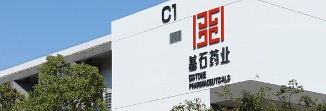Domestic PD-L1 goes overseas again
March 31, 2025
Source: drugdu
 234
234
 On March 24, CStone Pharmaceuticals announced that it had submitted a new indication application for Sugemalimab to the European Medicines Agency (EMA) for the treatment of patients with stage III non-small cell lung cancer. If approved, CStone Pharmaceuticals will further consolidate its position in the field of lung cancer immunotherapy.
On March 24, CStone Pharmaceuticals announced that it had submitted a new indication application for Sugemalimab to the European Medicines Agency (EMA) for the treatment of patients with stage III non-small cell lung cancer. If approved, CStone Pharmaceuticals will further consolidate its position in the field of lung cancer immunotherapy.
Rolling towards Europe
Sugemalimab is a fully human, full-length anti-PD-L1 monoclonal antibody developed by CStone Pharmaceuticals.
According to a press release from CStone Pharmaceuticals, the drug is a natural G-type immunoglobulin 4 (IgG4) monoclonal antibody drug that is closest to the human body. It can reduce the potential risk of immunogenicity and related toxicity in patients. Compared with similar drugs, Sugemalimab will have unique advantages.
The drug was first approved for marketing in China in December 2021 for the first-line treatment of non-small cell lung cancer combined with chemotherapy. It has since been approved for multiple indications including lung cancer, lymphoma, esophageal squamous cell carcinoma, and gastric cancer.
Although there are many "major indications", the competition for PD-(L)1 in China is quite fierce.
According to Yaozhi data, there are currently 23 PD-(L)1 products on the market in China. Multinational pharmaceutical companies such as Merck and BMS have taken the lead, while domestic pharmaceutical companies such as Hengrui, Innovent, BeiGene, and Akeso are competing for the market.
CStone Pharmaceuticals' Sugemalimab was launched relatively late, and due to some setbacks in its early operations, it chose a cooperative model for domestic commercialization, licensing the development and commercialization rights of Sugemalimab in China to Pfizer.
Faced with limited growth in the domestic market, many pharmaceutical companies have set their sights on overseas markets. PD-1 monoclonal antibodies from Junshi Biosciences and BeiGene have successively entered the European and American markets.
CStone Pharmaceuticals also performed well in this overseas expansion trend. Its Sugemalimab is the first domestically produced PD-L1 antibody approved in Europe, and it started with the major indication of non-small cell lung cancer.
In July 2024, Sugemalimab was approved by the European Commission for the first-line treatment of squamous and non-squamous stage IV non-small cell lung cancer in combination with chemotherapy. In October, Sugemalimab was approved for this indication in the UK.
This time, the new indication application submitted by Sugemalimab in the European Union is also for non-small cell lung cancer, specifically for the treatment of patients with unresectable stage III non-small cell lung cancer (NSCLC) who have not experienced disease progression after concurrent or sequential chemoradiotherapy (CRT).
If approved, Sugemalimab will become the first PD-L1 antibody in Europe to cover the entire course of stage III-IV lung cancer, and will cover more than 38,000 new patients.
This application reflects EMA's recognition of the GEMSTONE-301 study.
The Phase III clinical trial showed that Sugemalimab can significantly prolong patients' progression-free survival (PFS), reduce the risk of disease progression or death by 36%; and reduce the risk of death by 56%; and has a good safety profile, with no new risk signals found.
With the successful experience of launching in Europe, CStone Pharmaceuticals plans to launch Sugemalimab in more markets:
In May 2024, CStone Pharmaceuticals and Ewopharma entered into a strategic collaboration for Sugemalimab in Central/Eastern Europe and Switzerland;
In November 2024, CStone Pharmaceuticals and Pharmalink reached a strategic collaboration on Sugemalimab in the Middle East and Africa;
In January 2025, CStone Pharmaceuticals and SteinCares reached a strategic collaboration on Sugemalimab in Latin America.
It is expected that CStone Pharmaceuticals will reach more commercial collaborations in Western Europe, Southeast Asia, Canada and other regions in the near future.
Pipeline 2.0
CStone Pharmaceuticals’ ambition goes beyond PD-L1.
It has built a rich product pipeline consisting of 17 tumor and autoimmune disease drug candidates, including multiple ADCs, bispecific antibodies, trispecific antibodies and other potential molecules. Compared with the previous 1.0 pipeline centered on late-stage anti-tumor products, it has been upgraded to the differentiated 2.0 pipeline that now has both market prospects and innovation.
The two trump cards in the R&D pipeline 2.0 - ROR1 ADC (CS5001) and PD-1/VEGF/CTLA-4 triple antibody (CS2009) - have shown disruptive potential.
Conclusion
From quickly achieving commercialization by introducing late-stage anti-tumor products such as pralatrexib in the early days to turning to independent research and development of high-value projects such as CS2009, CStone Pharmaceuticals has demonstrated its continuous exploration and active transformation in the field of pharmaceutical innovation, and also reflects the iterative upgrade of the business model of Chinese pharmaceutical companies.
Currently, CStone Pharmaceuticals has 4 products on the market, and has achieved positive cash flow in the first half of 2024 by increasing revenue and reducing costs. With the launch of Sugemalimab in more markets, CStone Pharmaceuticals' performance is expected to continue to improve. However, ROR1 ADC and trispecific antibodies have not yet been commercially verified, and it remains to be seen whether CStone Pharmaceuticals can move to the next level.
https://news.yaozh.com/archive/45209.html
By editorRead more on
- API Is Not Just a Cost – It’s Your Ticket to Global Markets March 3, 2026
- Rovaxitinib approved for marketing, filling the demand for myelofibrosis treatment March 2, 2026
- Warrant Pharmaceuticals’ active pharmaceutical ingredient receives Brazil’s first official GMP certification March 2, 2026
- Merck’s New Story March 2, 2026
- Rongchang Biotechnology has turned a profit! March 2, 2026
your submission has already been received.
OK
Subscribe
Please enter a valid Email address!
Submit
The most relevant industry news & insight will be sent to you every two weeks.



